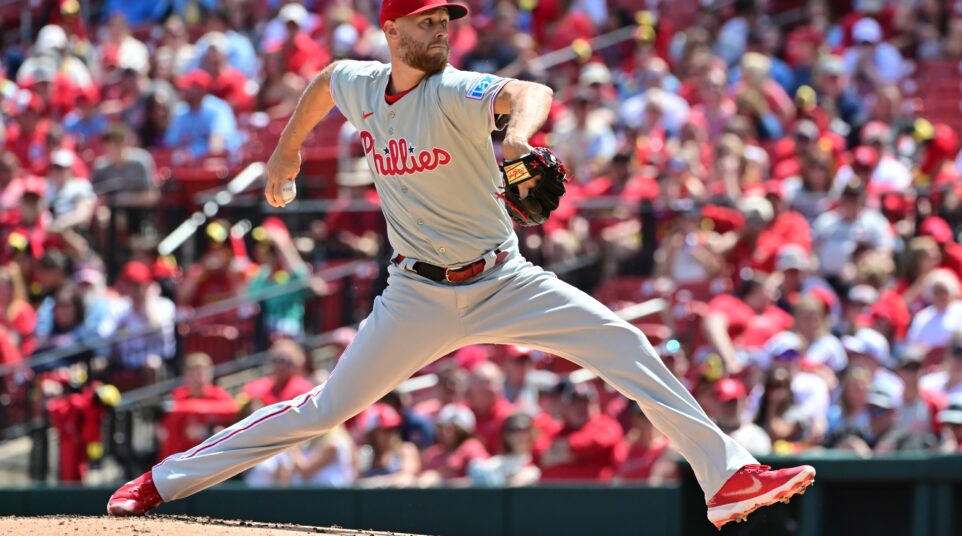
LeBron Criticizes Marcus Hayes on Pat McAfee Show
LeBron called out Marcus Hayes on The Pat McAfee Show during a conversation about the way the media covers the NBA:
LeBron called out Marcus Hayes on @PatMcAfeeShow. pic.twitter.com/asb7WMEbFG
— Michael K-B (@therealmikekb) March 26, 2025
He got parts of the story wrong. The real story is Hayes wrote about Joel Embiid’s brother, who died in a car accident his rookie year, while criticizing his load management and poor conditioning. Then all hell broke loose in the Sixers’ locker room the next time Embiid saw Hayes.
Here’s the blurb that upset Embiid and has since been removed from the original article:
Joel Embiid consistently points to the birth of his son, Arthur, as the major inflection point in his basketball career. He often says that he wants to be great to leave a legacy for the boy named after his little brother, who tragically died in an automobile accident when Embiid was in his first year as a 76er.
Well, in order to be great at your job, you first have to show up for work. Embiid has been great at just the opposite. Now in his 11th season, he consistently has been in poor condition. This poor conditioning apparently seems to have delayed his debut this season.
Out of line inflammatory bullshit you’ve come to expect from Hayes’ writing. Now it’s got some new life since LeBron spoke about it on one of the biggest shows out there. There’s not much more to add. You can say Hayes is trash and out of line or you can say he’s in-bounds and Embiid is soft. I think Kinker’s original post after the incident happened kind of nailed it from the perspective of how much juice is worth the squeeze in today’s hot take talking head media:
What’s interesting is to think about what the Inquirer thinks about this. For starters, editors should have never allowed that story to go to publication with the original lede. The column itself was straightforward Marcus stuff, and totally fair, but any editor paying half attention over there should have flagged those first two paragraphs immediately. Just leave the son and the deceased brother out of it, a general “best practice” when deciding what’s good for print and what’s not. Reminder, this is the same newspaper that created a messy employee revolt as a result of the “Buildings Matter, Too,” headline, which resulted in a wave of old white guy buyouts and a seismic DEI pivot after an audit from Temple University. You’d think leadership would be extra cautious because of how the last half-decade has gone over there.
RE: Marcus himself, Gabe Escobar writes that Hayes “offers sharp and illuminating commentary grounded in his observations,” which I guess is how he describes provocateur column writing. Marcus is basically 94 WIP in written form, and sometimes literal form when he’s on their airwaves. That’s not me being a dickhead, it’s a statement of truth. Hayes is to print what Angelo Cataldi was to the radio, or what any talking head is to the hot take television shows. You take hard stances and critique players and teams, which results in pointed reactions from both sides while generating engagement at the same time. A few years ago, someone told me that Marcus columns do pretty well for the Inquirer, at least compared to the more straightforward beat writing, so if they have something that people click on, which generates pageviews and moves the needle, then yeah, they’re probably going to stick with it, and they’re going to defend their employee when things like this happen.
You just wonder if it’s worth it in 2024. Marcus has been called out by A.J. Brown and Joel Embiid this year alone. The latter culminated with a physical altercation. If Pagan or one of our freelancers got into it with a player, I’d be embarrassed and would consider resigning, because a dispute advancing to that point would indicate an editorial failure on my part. So if you’re the Inquirer, at what point does this stuff begin to influence your approach? How many hate clicks and how much engagement is required to offset the backlash you get every time a Marcus column angers an athlete and/or fans? I’m genuinely curious. If I had Inquirer leadership in front of me, I’d ask them “is this worth it? is this a net positive?” Holding players accountable is important, and Marcus is great at what he does, but is this the way we’re gonna operate in 2024? You tell me.





